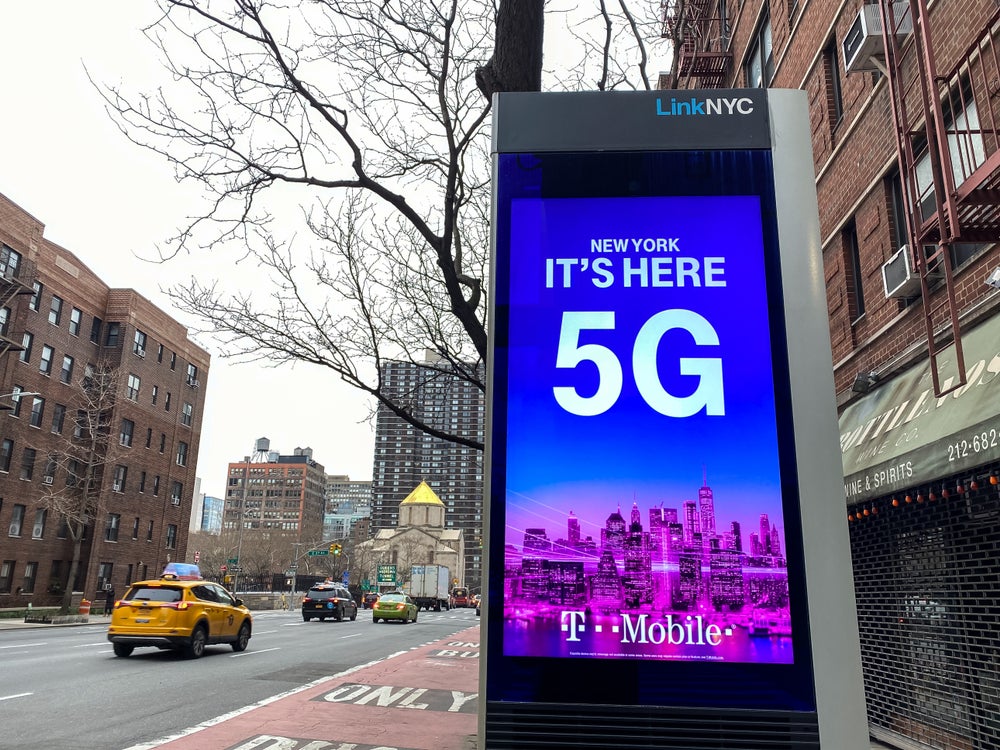With the US House of Representatives passing the 5G Spectrum Authority Licensing Enforcement (SALE) Act last week, the Federal Communications Commission (FCC) should soon find itself finally able to fork over the pile of 2.5 GHz spectrum licenses T-Mobile US bought at auction for $304m in late 2022.
With the Un-carrier already enjoying a 5G mid-band spectrum advantage in the US, this latest spectrum infusion spells bad news for T-Mobile’s competitors, particularly cable operators fending off fixed wireless access (FWA) in the home internet space and regional wireless operators already clinging to life in a saturated market.
2.5 GHz spectrum licenses had become a political football
As a refresher: T-Mobile secured almost all the licenses on offer in the FCC’s 2.5 GHz auction – 7,156 of a total 7,872 – and managed to do so for a song, with both AT&T and Verizon forgoing the auction since the spectrum didn’t fit with their existing holdings. (T-Mobile, on the other hand, has a wealth of 2.5 GHz spectrum in its network already thanks to legacy leasing agreements carried over in the Sprint deal.)
However, after the US Congress allowed the FCC’s auction authority to lapse in March 2023, T-Mobile’s purchased 2.5 GHz licenses became something of a political football in the tussle between the US wireless telecom industry and the US military over shared vs. exclusive spectrum access in the lower reaches of the 3 GHz band. Despite T-Mobile having purchased the licenses months prior to the lapse in the FCC’s auction authority, the agency maintained that it could not legally hand them over until Congress got its business in order.
The 5G SALE Act, once signed by President Biden (considered something of a foregone conclusion at this point), will provide the FCC with one-time, temporary authority to issue licenses purchased prior to the lapse in auction authority in March 2023.
Basically, the legislation is intended specifically to free up the licenses for T-Mobile and the other winners in the 2.5 GHz auction. While the SALE Act doesn’t really do much of anything to clear up the US’s big-picture impasse on moving forward with a cogent spectrum roadmap, it should nonetheless have a significant near-term impact on T-Mobile’s network performance, particularly in rural areas covered by the purchased 2.5 GHz licenses.
How well do you really know your competitors?
Access the most comprehensive Company Profiles on the market, powered by GlobalData. Save hours of research. Gain competitive edge.

Thank you!
Your download email will arrive shortly
Not ready to buy yet? Download a free sample
We are confident about the unique quality of our Company Profiles. However, we want you to make the most beneficial decision for your business, so we offer a free sample that you can download by submitting the below form
By GlobalDataT-Mobile hasn’t been twiddling its thumbs during the interim
T-Mobile US got busy knocking out much of the infrastructure buildout for its purchased 2.5 GHz holdings while the company waited for Washington to untangle itself long enough to function. Now, the operator will waste no time firing up that spectrum.
For T-Mobile, that will mean increased mid-band 5G spectrum depth across the board in short order and, crucially, a stronger presence in areas beyond the suburbs and city centres. Mid-band spectrum depth, in particular, is an essential ingredient for operators hoping to mature their 5G network builds and offer the speeds and latency promised during the technology generation’s early hype cycles.
Cable operators and regional wireless operators alike can anticipate T-Mobile leveraging its newly buttressed network holdings with targeted offers to potential customers in its strengthened rural footprint. Many of those consumers will be aware of its brand but unaware of its improved connectivity in their area. It’ll be a tough blow to those smaller wireless operators in particular, as their margins are often quite tight already; thus, those operators are unable to wield the sort of device subsidy incentives at the disposal of heavyweight operators like T-Mobile – never mind the adjacent digital service deals those behemoths can negotiate as perks for subscribers.









Related Company Profiles
AT&T Inc